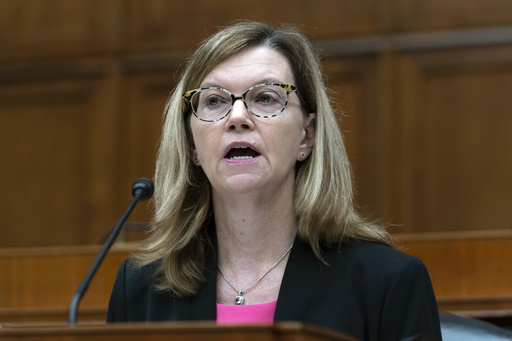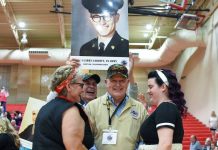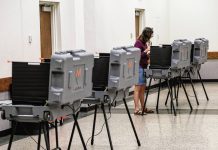Several bouts with cancer have taught a Flat Rock-Hawcreek School Corp. employee some important life lessons.
One was being grateful, even for the little things, Columbus resident Steve Robertson said.
“I realized you can’t take things for granted in life,” he added. “It was a major lesson I had to learn.”
Those lessons were born out of battles with cancer starting more than 40 years ago, and also within the last five years.
Robertson went in the hospital in 1975 for what he thought would be a simple hernia repair. Instead, the then-25-year-old husband and father of two was told by doctors that they had found a tumor in one of his testicles and that they had to remove it as well. Doctors were concerned that due to the size of the tumor the malignancy may have spread to the lymph nodes in his abdomen, Robertson said.
He soon underwent a second surgery. Fortunately, the removed lymph nodes showed no signs of cancer, he added.
Subsequently, he had to have a chest X-ray every three months.
“They said if it would come back it would be within two years,” Robertson said.
Looking back, Robertson said he believes his young age is part of why the cancer diagnosis didn’t rattle him as much as it maybe should have. However, just shy of the two-year mark in 1977 two spots on his lung were detected during a routine X-ray.
“When they told me I had the two spots on my lung, that hit me big time,” he said. “It hit me harder than it did the first time.”
Robertson said his father died from a cancerous brain tumor and his mother struggled with leukemia for years. But back in those days, cancer wasn’t talked about, he added.
In the late 1970s, some of what would become common-place chemotherapy drugs were being developed. Little did Robertson know, but he would soon be a guinea pig, he said.
“They couldn’t remove the tumors because they said it would have to take too much of his lung,” Robertson’s wife, Vicki, said.
Doctors sent Robertson to what was then IU Medical Center in Indianapolis. Robertson received an intravenous chemotherapy infusion consisting of a three-drug cocktail that would be later used to treat renowned cyclist Lance Armstrong’s cancer.
The intended schedule was for Robertson to receive three rounds of an IV infusion administered for seven days with three weeks off afterward. Although it made him horribly ill, he completed the treatment.
“I went from 150 pounds to 98 pounds,” Robertson said. “It really did a number on me, but there’s no question that it worked.”
Robertson was then placed on a monthly single-drug IV chemotherapy infusion for the next 18 months.
When he was given the all clear in 1977, Robertson said he never gave a recurrence a single thought. Robertson said he felt a huge sense of relief following his second remission.
The Robertsons went on with life and raised their two children. Robertson left farming and took a job working maintenance, and later as a bus driver, for Flat Rock-Hawcreek School Corp.
Thirty-five years later, his old nemesis returned.
In 2012, Robertson went in for routine blood work and was told he had autoimmune anemia — a blood disorder where the body destroys more red blood cells than it is able to produce. Doctors were unable to tell him if the condition was related to his previous bouts with cancer, he said.
Robertson was given a variety of drugs, including Prednisone, to control the condition and keep it from progressing. But he started feeling worse despite treatment.
He sought a second opinion and was told that he had pneumonia. In addition to the illness, he also learned he had chronic leukemia and lymphoma. Doctors never classified either diagnosis as having a stage, he said.
“My doctor told me upfront he can’t cure me,” Robertson said. “But he said he is going to keep it in remission as long as possible.”
In 2014, Robertson started another round of less intense chemotherapy. He did well with the therapy and was in remission a couple of times, he said.
But in January of this year, his blood platelets dropped dramatically, forcing him into the hospital so doctors could bring them back to stable levels, Robertson said.
He started another round of stronger, monthly, single-dose IV chemotherapy infusion in March.
The entire time he was taking the latest round of chemotherapy, Robertson continued to work, he said.
“We’ve had a lot of prayers, love and support from family and neighbors,” Robertson said. “God has done it all.”
After he finished his latest round of chemotherapy in August, Robertson said he waits patiently to find out what happens next.
This decades-long journey has given him more of an appreciation for his health and the little things in life than he ever had before, Robertson said.
Vicki Robertson said it is important for family members to support family members with cancer. Just to be with them and keep their spirits up can make all the difference in the world, she added.
“Just know it is all in God’s hands,” she said.
Robertson said he is thankful for every day. He credits God with giving him the strength to keep “plugging along,” he said.
“Attitude is half of your battle,” Robertson said. “So try to have a good attitude and trust in God that he will carry you through.”
[sc:pullout-text-end][sc:pullout-title pullout-title=”Colors for a Cure” ][sc:pullout-text-begin]
Who: Steve Robertson
Occupation: Maintenance worker and bus driver for Flat Rock-Hawcreek School Corporation
Age: 67
Resides: Columbus
Type of Cancer: Testicular cancer, 1975; lung cancer, 1977; leukemia and lymphoma, 2012 – 2014
Treatments: Radical inguinal orchiectomy, 1977; retroperitoneal lymph node dissection, 1977; Chemotherapy.
Family: Wife, Vicki; son, Tim; daughter, Tina.
Words of encouragement: “Attitude is half of your battle. So try to have a good attitude and trust in God that he will carry you through.”
[sc:pullout-text-end]







